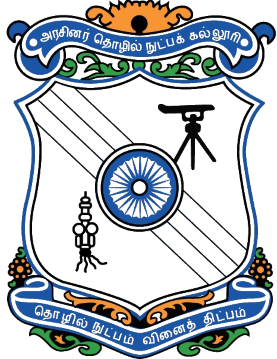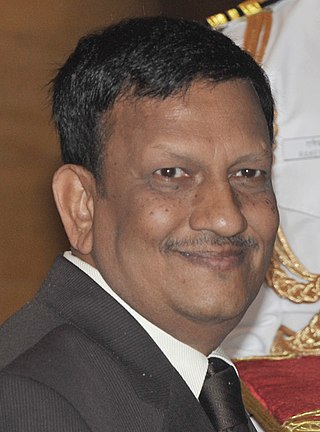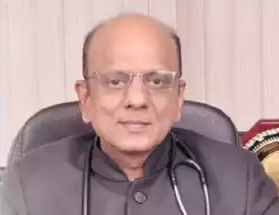Related Research Articles

Anil Kakodkar, is an Indian nuclear physicist and mechanical engineer. He was the chairman of the Atomic Energy Commission of India and the Secretary to the Government of India, he was the Director of the Bhabha Atomic Research Centre, Trombay from 1996 to 2000. He was awarded the Padma Vibhushan, India's second highest civilian honour, on 26 January 2009.
Faqir Chand Kohli was a co-founder and the first CEO of TCS Tata Consultancy Services, India's largest software services company. He was also associated with other companies within Tata Group, including Tata Power Company and Tata Elxsi, and had been President of Indian Information Technology (IT) services advocacy body NASSCOM. He was a recipient of the Padma Bhushan, India's third-highest civilian honor, in 2002 for his contributions to the Indian software industry. He is referred to as the "Father of the Indian IT Industry", for his contributions to the establishment and growth of the Indian IT industry.
The Engineering Services Examination (ESE) is a standardized test conducted annually by the Union Public Service Commission (UPSC) to recruit officers to various engineering Services under the Government of India. Held in four categories—Civil, Mechanical, Electrical, and Electronics & Telecommunication, the exam has three stages comprising objective, subjective and personality tests. The Services are also informally known as Indian Engineering Services (IES).

Government College of Technology, Coimbatore (GCT) is an autonomous state-funded engineering college located in Coimbatore, Tamil Nadu, India. It is affiliated to Anna University.

Dr. Srikumar Banerjee was an Indian metallurgical engineer. He retired as the chairman of the Atomic Energy Commission of India (AECI) and the secretary of Department of Atomic Energy (DAE) on 30 April 2012. Prior to his stint as DAE chairman, he was the director of Bhabha Atomic Research Centre (BARC) from 30 April 2004 to 19 May 2010. He had also served as a DAE Homi Bhabha Chair Professor at Bhabha Atomic Research Centre, Mumbai. He was known as a great physical metallurgist.

Vijay Pandurang Bhatkar is an Indian computer scientist, IT leader and educationalist. He is best known as the architect of India's national initiative in supercomputing where he led the development of Param supercomputers. He is a Padma Shri, Padma Bhushan, and Maharashtra Bhushan awardee. Indian computer magazine Dataquest placed him among the pioneers of India's IT industry. He was the founder and executive director of Centre for Development of Advanced Computing (C-DAC) and is currently working on developing exascale supercomputing for India.
Ashok Jhunjhunwala is an Indian academic and innovator. He received his B.Tech. from the Indian Institute of Technology, Kanpur and PhD from the University of Maine. He has been a faculty member at the Indian Institute of Technology Madras since 1981. He is the President of IIT Madras Research Park and Chairman of International Institute of Information Technology, Hyderabad. During his career, he has contributed extensively to technology innovation and adoption in the Indian context.

Postgraduate Institute of Medical Education and Research (PGIMER) is a public medical university in Chandigarh, India. It is an 'Institute of National Importance'. It has educational, medical research, and training facilities for its students including all specialties, super specialties and sub specialties. It is the leading tertiary care hospital of the northern India region and caters to patients from all over Punjab, Jammu and Kashmir, Himachal Pradesh, Uttarakhand, Haryana, Bihar and Uttar Pradesh. Apart from the clinical services, PGI also provides training in almost all disciplines of medicine including post graduate and post doctoral degrees, diplomas, Doctor of Philosophy and fellowships. There are more than 50 such training courses in the institute. The 100-seat MBBS college is expected to start by 2025 at PGI's satellite centre in Sarangpur.

Dr. S. K. Shivakumar was an Indian Distinguished Scientist from Karnataka state who worked at the Indian Space Research Organisation (ISRO) centres. He was awarded the Padma Shri, the fourth highest civilian award of India, in 2015.

Deep Joshi is an Indian social worker and NGO activist and a recipient of the Magsaysay award in 2009. He is recognised for his leadership in bringing professionalism to the NGO movement in India. He co-founded a non-profit organisation, Professional Assistance for Development Action (PRADAN), of which he was the Executive Director till 2007. He was awarded the 2009 Magsaysay award for Community Leadership for his work for "development of rural communities". He is also a recipient of the civilian honour of Padma Shri.
Shivram Baburao Bhoje is a distinguished Indian nuclear scientist who worked in the field of fast-breeder nuclear reactor technology for forty years in the design, construction, operation, and research and development. Indian government has honoured him with Padma Shri in 2003, the fourth highest civilian award in India, for his distinguished service to science and engineering fields.

Venu Srinivasan is an Indian billionaire industrialist who is the chairman emeritus of two-wheeler manufacturer TVS Motor Company and auto components manufacturer TVS Holdings. In addition, he serves on the board of Tata Sons and as one of the vice-chairmen of Tata Trusts. He received the Padma Bhushan, India's third-highest civilian award, in January 2020.

Krishnaswamy Vijayraghavan is an emeritus professor and former director of the National Centre for Biological Sciences. On 26 March 2018, the Government of India appointed him as the principal scientific adviser to succeed Dr. R Chidamabaram. His term as Principal Scientific Adviser ended on 2 April 2022. In 2012, he was elected a fellow of The Royal Society and in April 2014 he was elected as a foreign associate of the US National Academy of Sciences. He was conferred the Padma Shri on 26 January 2013 and is also a recipient of the Infosys Prize in the life sciences category in 2009.
Sulajja Firodia Motwani is an Indian entrepreneur. She is currently the vice-chairperson of Kinetic Engineering Limited and is the founder and CEO of Kinetic Green Energy & Power Solutions Limited.

Krishan Kumar Aggarwal was an Indian physician and senior cardiologist who was President of the Confederation of Medical Association of Asia and Oceania (CMAAO), President of the Heart Care Foundation of India and the Past National President of Indian Medical Association. In 2010, the Government of India honored him with the Padma Shri, India's fourth-highest civilian award, for his contributions to the field of medicine.
Bal Krishen Thapar was an Indian archaeologist who served as the Director-general of the Archaeological Survey of India from 1978 to 1981. He was the founder of INTACH.
Nuthakki Bhanu Prasad (1928-2013) was an Indian chemical engineer, bureaucrat and a former chairman of the Oil and Natural Gas Commission (ONGC). He is credited with the design of the first Magnesium Plant in India in 1994 and was involved with the commissioning of Apsara research reactor, the first Indian atomic reactor. The Government of India honoured him in 1960, with the award of Padma Shri, the fourth highest Indian civilian award for his services to the nation.
Tumkur Seetharamaiah Prahlad is an Indian aerospace scientist and the former director of the National Aerospace Laboratories (NAL), Bengaluru, known as a specialist in Aerodynamics and Aerospace Design. His contributions are reported in Indian civil aircraft development programmes of Hansa and NAL Saras and light combat aircraft development programme. The Government of India awarded him the civilian honour of the Padma Shri in 2004, The same year, he received the H. K. Firodia Award from H. K. Firodia Memorial Foundation.
Satish Kumar Kaura is an Indian technocrat, industrialist and the founder of Samtel Group, where he holds the post of the chairman. He is also the chairman and managing director of Samcor Glass Limited and the executive director of Samtel Colour Limited. An elected Fellow of the Indian National Academy of Engineering (INAE), Kaura is the first recipient of the Distinguished Alumnus Award of the Indian Institute of Technology, Kanpur. The Government of India awarded him the fourth highest civilian honour of the Padma Shri, in 2004, for his contributions to Indian industrial sector.
References
- ↑ "Arun Firodia:Founder of Kinetic Group of Companies". Archived from the original on 14 July 2010. Retrieved 13 August 2012.
- ↑ "Our Founder: H. K. Firodia". Archived from the original on 7 August 2012. Retrieved 13 August 2012.
- ↑ "Padma Shri Awardees" . Retrieved 13 August 2012.
- ↑ "Sancheti to be honoured with Padma Vibhushan". The Times of India . Archived from the original on 3 January 2013. Retrieved 13 August 2012.
- ↑ "Four Punekars win Padma" . Retrieved 13 August 2012.
- ↑ "Republic Day: Muthuraman, Subbiah, Priya Paul among Padma awardees". The Times Of India. 25 January 2012. Archived from the original on 5 March 2016. Retrieved 13 August 2012.